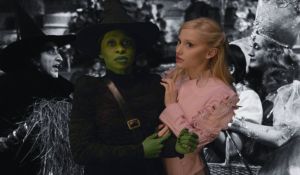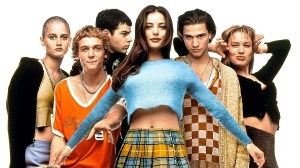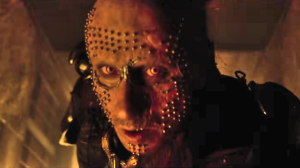Wicked: For Good brings tons of great songs to the big screen while delivering the beloved stage musical’s moving conclusion. The follow-up to Wicked (2024) resumes the story as Elphaba (Cynthia Erivo) goes on the run after being branded the Wicked Witch of the West. Meanwhile, Glinda the Good Witch (Ariana Grande) establishes herself as a public figure in the Emerald City, working closely with Madame Morrible (Michelle Yeoh) and the Wizard of Oz (Jeff Goldblum). Elphaba strives to rescue the persecuted animals of Oz and expose the Wizard’s lies as her friendship with Glinda is put to the test. Wicked included iconic songs such as the oh-so-catchy “What Is This Feeling?” and “Popular,” as well as the glorious final track “Defying Gravity.” Although Wicked: For Good‘s musical numbers generally don’t garner as much recognition as the first film’s tracks, there are still many hits to enjoy.
Videos by ComicBook.com
Some of Wicked: For Good‘s songs evoke more excitement or emotion than others, but they all greatly impact the final chapter of Elphaba and Glinda’s story. Written and composed by Stephen Schwartz, Wicked: For Good‘s music includes two brand-new songs in addition to those from the Broadway production. Ranked from worst to best, the following 11 tracks make up Wicked: For Good‘s captivating soundtrack.
WARNING: This article contains spoilers for Wicked: For Good.
11) “March of the Witch Hunters”
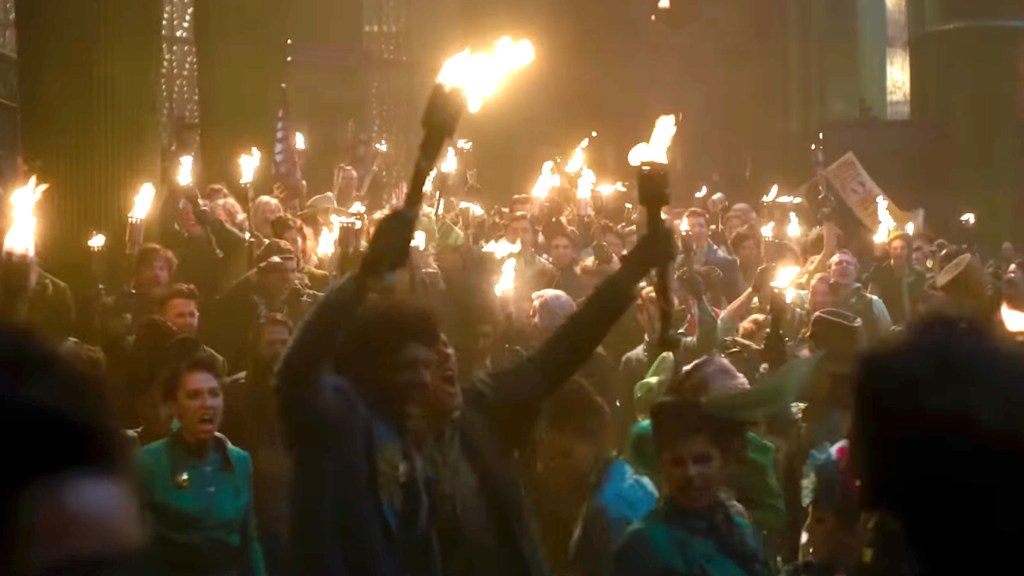
“March of the Witch Hunters” ominously spotlights the angry Ozians’ desire to burn Elphaba at the stake. The ensemble lets loose an intimidating wave of fury as people on the streets of the Emerald City insist that “wickedness must be punished.” Aside from Boq’s (Ethan Slater) brief solo, “March of the Witch Hunters” doesn’t include any of Wicked: For Good‘s main characters. As a result, the song pales in comparison to others on the soundtrack. Despite its short length and lack of standout qualities, “March of the Witch Hunters” does a terrific job of establishing the vicious mob mentality of Ozians in the movie.
10) “The Wicked Witch of the East”
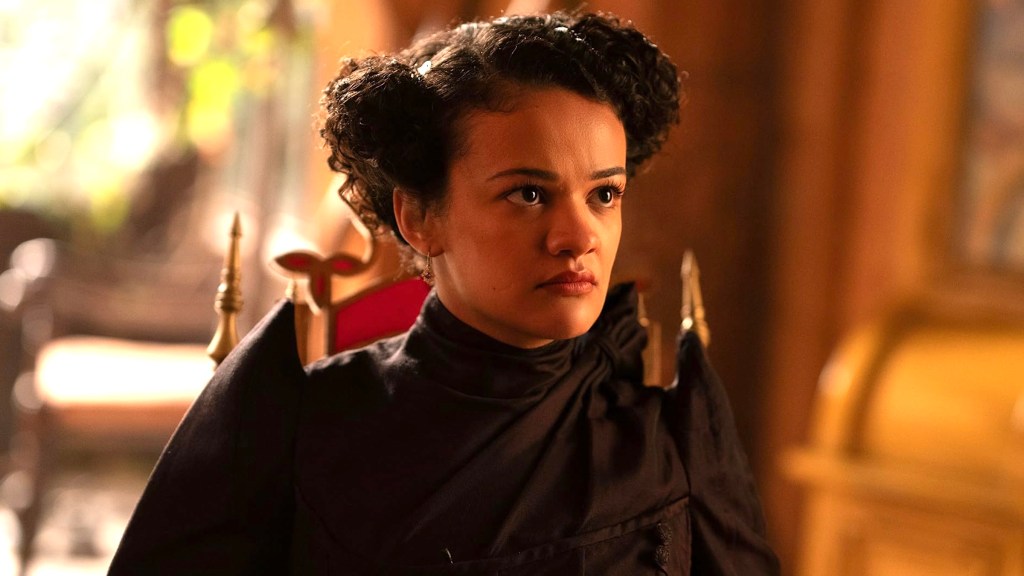
Nessarose’s (Marissa Bode) biggest part in Wicked: For Good comes in “The Wicked Witch of the East,” which she calls herself after impulsively casting a spell to take Boq’s heart away. During the song, the governor of Munchkinland reconnects with Elphaba, who uses her magic to make Nessarose fly for an instant. “The Wicked Witch of the East” begins warmly and descends into anguish as Nessarose clashes with Boq, bringing about an unsettling air of calamity in this pivotal part of the story. Bode, Erivo, and Slater’s vocals impress in “The Wicked Witch of the East,” but the movie features a multitude of more rousing and memorable hymns. As one of the shorter tracks on Wicked: For Good‘s soundtrack, “The Wicked Witch of the East” warrants less attention than most others.
9) “I’m Not That Girl (Reprise)”
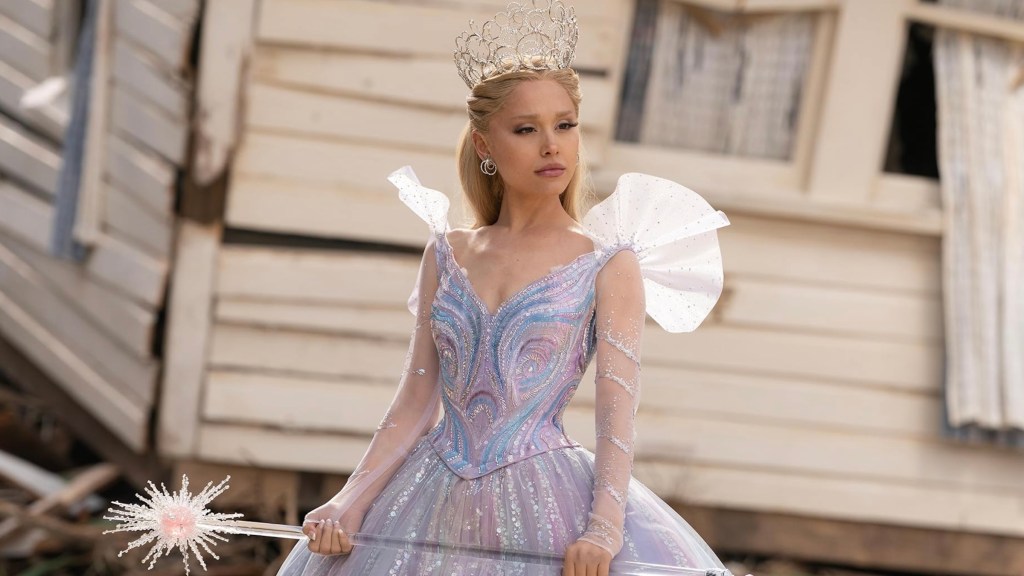
Echoing Elphaba’s rendition of “I’m Not That Girl” in Wicked, Glinda reprises the song upon discovering that Prince Fiyero (Jonathan Bailey) doesn’t love her. Much like Elphaba’s heartbreaking realization in the first movie, Glinda’s version of “I’m Not That Girl” is saturated with despair. Grande sings just six lines on the track, though she effortlessly sells her character’s dwindling emotional state. The reprise also features commanding instrumentals that make it all the more devastating. Wicked: For Good‘s “I’m Not That Girl” makes for a sad yet enjoyable listen. Yet, its condensed length prevents it from standing out more from the other songs.
8) “Wonderful”
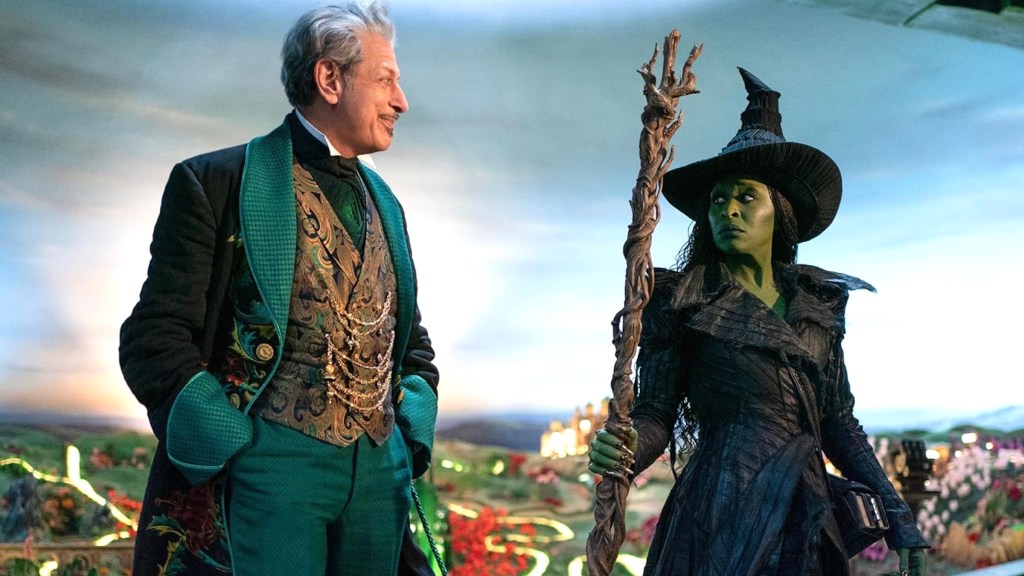
“Wonderful” is the catchy, upbeat song Wicked: For Good needs amid its more serious turn of events. Goldblum’s performance of “A Sentimental Man” in Wicked didn’t receive much praise from fans; however, the actor is significantly more impressive as the Wizard in “Wonderful.” Jovially detailing how he spreads lies to the masses and inviting Elphaba to work with him again, the Wizard is joined on the song by Glinda, who brings a satisfying levity to the circus-like musical number. Lyrically sharp and markedly infectious, “Wonderful” can be listened to countless times without growing stale. Numerous other songs in Wicked: For Good leave a more compelling impression, but “Wonderful” deserves appreciation for its dance-worthy qualities.
7) “The Girl in the Bubble”
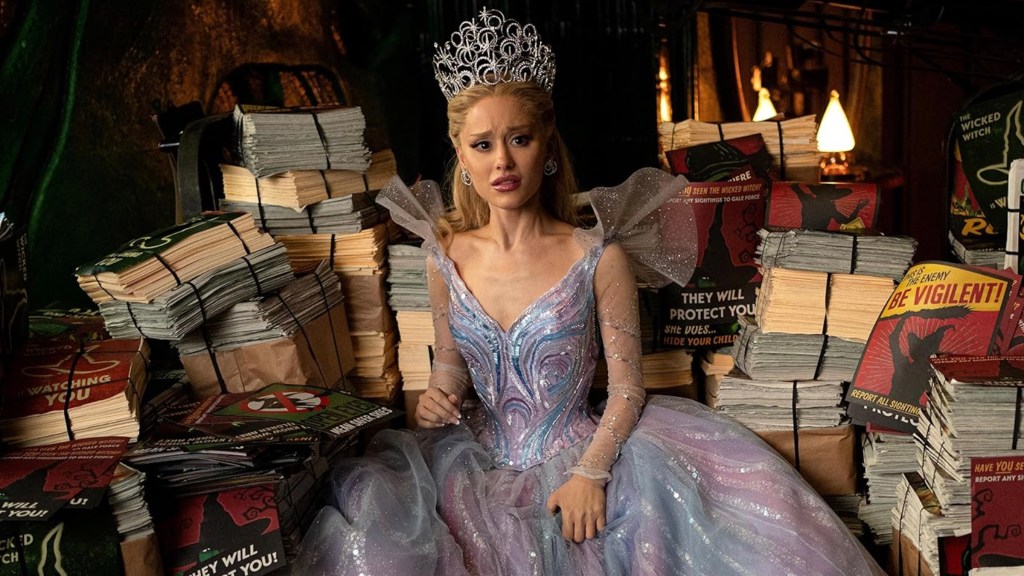
“The Girl in the Bubble” was written exclusively for Wicked: For Good. The deeply contemplative track opens a window into Glinda’s mind as she sees her once-perfect world crashing down around her. Abandoned by Fiyero and confronted with her failure to be truly good, Glinda wonders if it’s time for her bubble to pop — both literally and figuratively. “The Girl in the Bubble” fleshes out Glinda to a greater extent than Wicked: For Good‘s other songs, and its soft melody is beautiful to listen to. Grande’s performance injects a fascinating vulnerability into the character, whose peppy facade has completely disappeared. Ultimately, “The Girl in the Bubble” doesn’t quite stack up to some of Wicked: For Good‘s most renowned songs. However, it’s still a pleasant and poignant sequence in the movie.
6) “No Place Like Home”
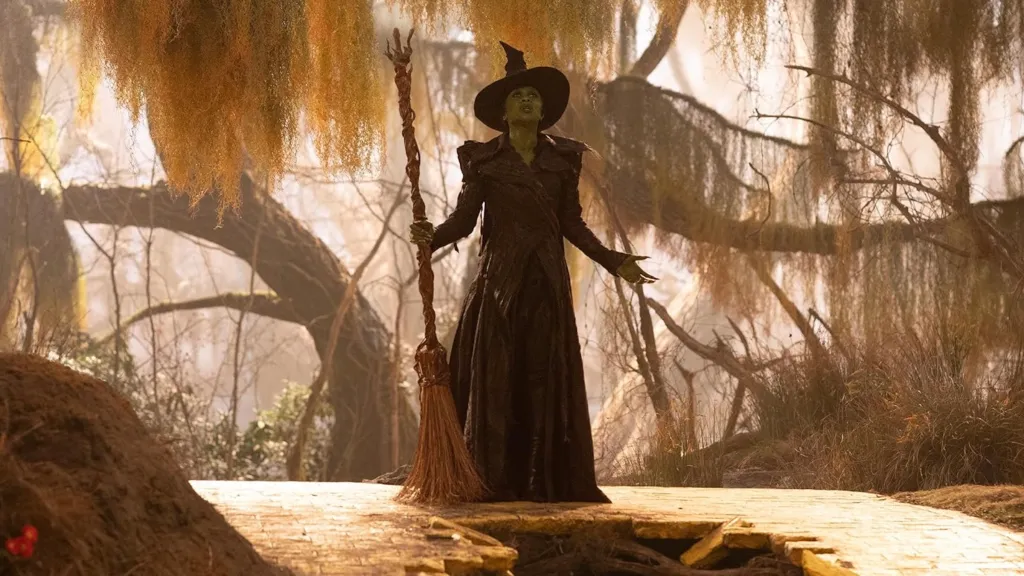
The other new song added to Wicked: For Good, “No Place Like Home,” is a sobering yet uplifting reflection on one’s battle to survive in a land they love. Elphaba and the animals find themselves unjustly villainized by Ozians, and as they ponder leaving, the witch reassures them that their home belongs to them and that they should fight to keep it. The song obviously references Dorothy’s trademark phrase in The Wizard of Oz, yet “No Place Like Home” offers a fresh take on these words. “No Place Like Home” wonderfully fits in Wicked: For Good, both musically and narratively, though its lyrics are also strikingly relevant to the real world. It won’t likely transcend the popularity of Wicked: For Good‘s very best songs, but “No Place Like Home” stands out as a heartening track that strengthens Elphaba’s character.
5) “Every Day More Wicked”
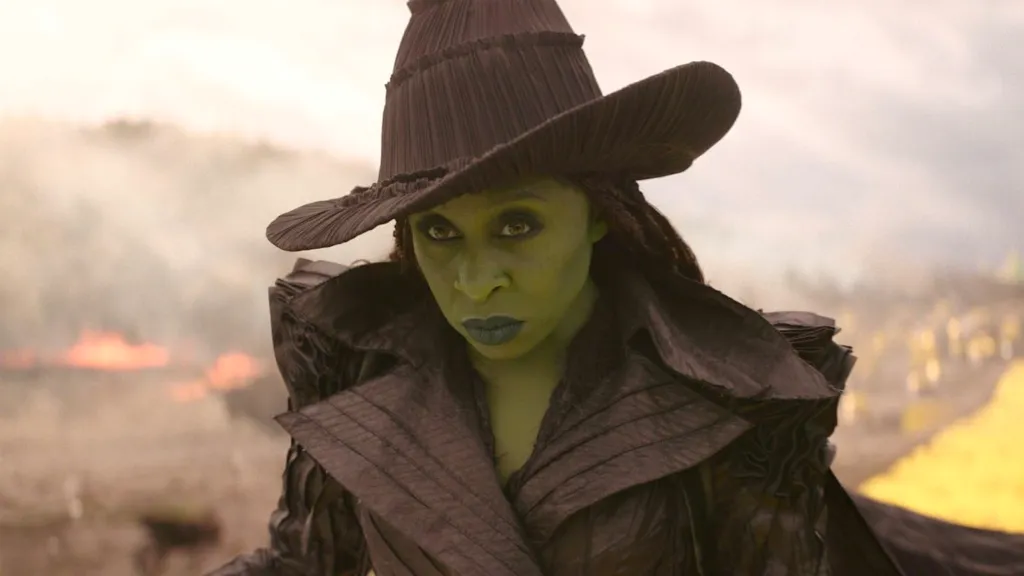
Wicked: For Good‘s opening musical number is a worthy successor to Wicked‘s “No One Mourns the Wicked.” Recycling several of the first movie’s themes, “Every Day More Wicked” is an energetic tone-setter. The song establishes Elphaba’s effort to prove the Wizard a fraud, Glinda’s reign as the “goodliest” person in Oz, and the people’s rampant fear of the Wicked Witch. “Every Day More Wicked” sounds like a more vigorous version of “No One Mourns the Wicked,” adding the right amount of tension to capture the present moment’s stakes. Wicked: For Good immediately brings Elphaba and Glinda’s diverging paths to the forefront of the story, and “Every Day More Wicked” serves as an excellent preface to the movie’s events.
4) “As Long as You’re Mine”
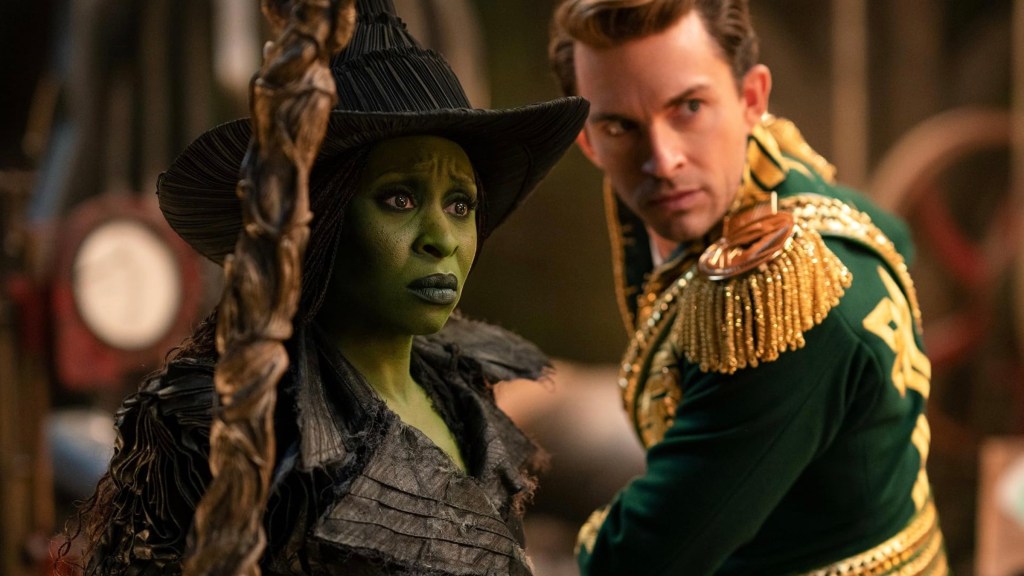
Wicked and Wicked: For Good slowly build up to Elphaba and Fiyero’s romance, and the long wait proves absolutely worth it. The two finally connect as lovers at Elphaba’s woodland hideout during “As Long as You’re Mine,” a stirring and emphatic duet that unearths all of the feelings the witch and the prince have been holding back. Erivo and Bailey are electrifying, displaying fantastic chemistry as they express Elphaba and Fiyero’s passion with outstanding vocal performances. “As Long as You’re Mine” meets the moment with lively instrumentals to set the romantic mood. The track superbly captures the catharsis of Elphaba and Fiyero’s love, and it’s one of the four best musical set pieces in Wicked: For Good.
3) “Thank Goodness / I Couldn’t Be Happier”
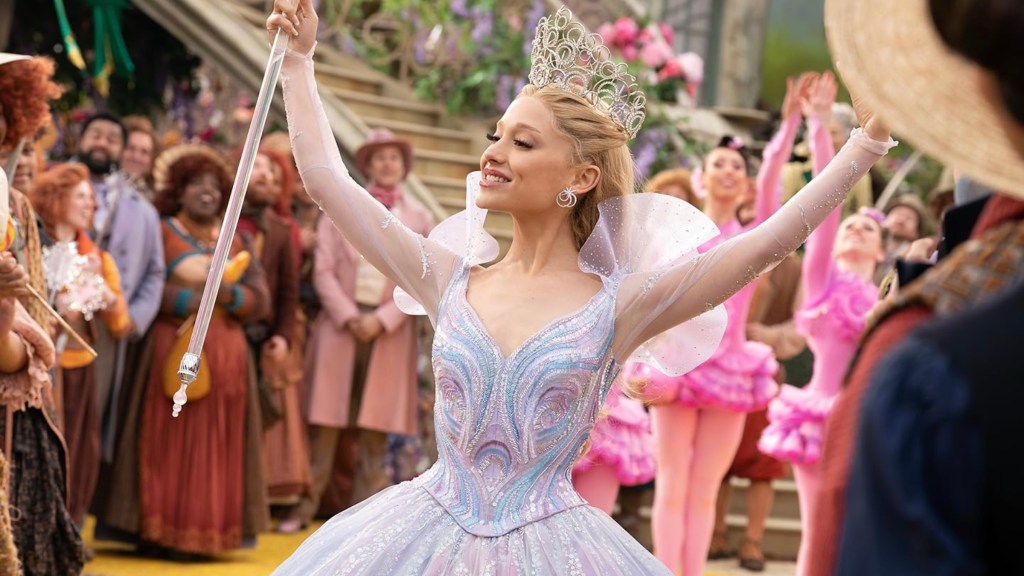
While celebrating the completion of the Yellow Brick Road in Wicked: For Good, Glinda and Madame Morrible surprise Fiyero by announcing his engagement to Glinda. The Good Witch sings “I Couldn’t Be Happier” as the enthralled crowd belts out “Thank Goodness.” What begins as a joyous and fervent track sees Glinda’s declaration of happiness become laced with doubt as nearby Ozians salivate at the idea of killing Elphaba. Glinda’s transition from carefree to complicated as she ponders her current circumstances makes “Thank Goodness / I Couldn’t Be Happier” an emotional roller coaster. Grande’s usually bubbly vocals exhibit a quiver of sadness during the latter half of the song, remarkably mirroring Wicked: For Good‘s shift toward a darker tone.
2) “No Good Deed”
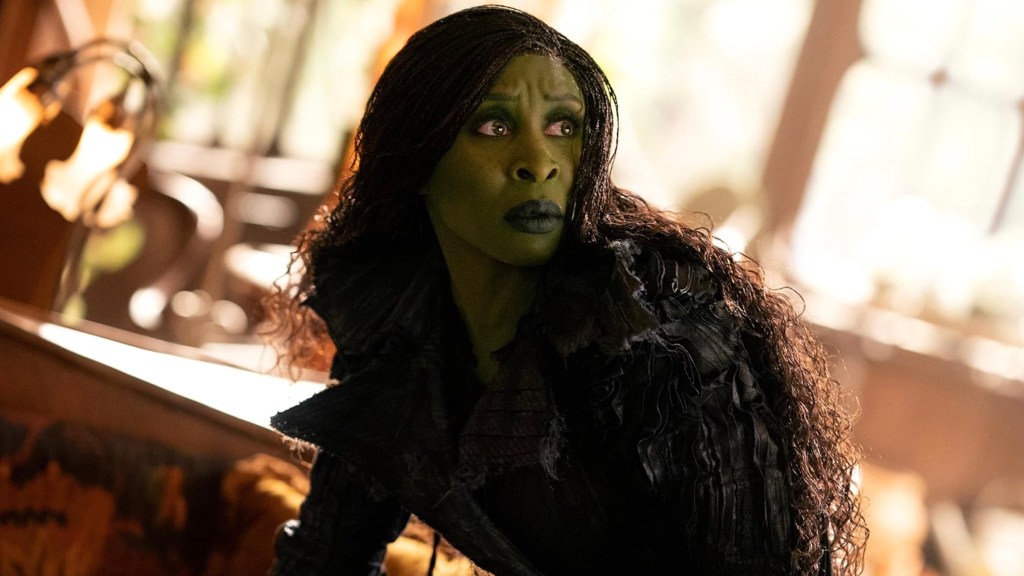
One could say that “No Good Deed” is Wicked: For Good‘s parallel to Wicked‘s “Defying Gravity,” as Erivo’s Elphaba once again performs a thunderous solo brimming with emotion. Reeling from the capture of Fiyero and the death of Nessarose, Elphaba decries the world that has incessantly caused her suffering. Chanting spells and unleashing magic in her lair, Elphaba laments her shortcomings and questions her intentions toward others in this riveting outburst. Amazingly but unsurprisingly, Erivo nails every challenging note in “No Good Deed,” which certainly demands the most talented of vocalists. Elphaba’s inner turmoil surfaces in resounding fashion as she accepts the role of Oz’s villain. “No Good Deed” powerfully reinforces Elphaba’s many layers of agony, conviction and vulnerability. Among the most narratively significant songs in Wicked: For Good, “No Good Deed” is an awe-inspiring feat of music.
1) “For Good”
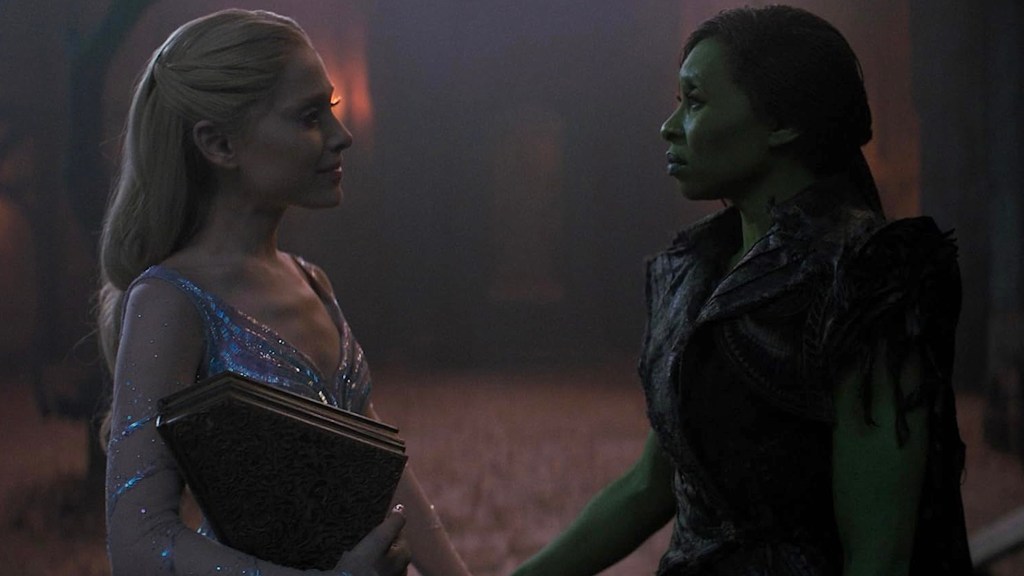
“For Good” carries the entire emotional weight of Elphaba and Glinda’s relationship, and it’s the perfect musical number for their tear-jerking farewell. Determined to sacrifice herself and task Glinda with changing Oz for the better, Elphaba hands her friend a parting gift before they each sing, “because I knew you, I have been changed for good.” Tender and bittersweet, “For Good” pays off every tragic and triumphant moment leading up to the two-part movie’s finale. The duet conveys the complexity and gravity of Elphaba and Glinda’s intertwined arcs as they pour their hearts out to each other one last time. Extraordinarily moving and brilliantly performed by Erivo and Grande, “For Good” exceeds its high expectations and becomes a cinematic moment audiences will talk about for a long time.
Wicked: For Good is now playing in theaters.
How do you rank the songs in Wicked: For Good? Leave a comment below and join the conversation now in the ComicBook Forum!

